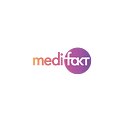Affordable Healthcare Premiums Made Possible by AI and Blockchain
Healthcare costs have been a growing concern globally, but technological advancements are paving the way for transformative changes. AI and blockchain technologies, especially through platforms like Medifakt, are making healthcare premiums affordable by decentralizing systems and rewarding proactive health behaviors. Let’s explore how these innovations are reshaping the landscape.
Revolutionizing Healthcare with Blockchain
The integration of blockchain in healthcare is revolutionizing the way health data is stored, managed, and utilized. At the core of this revolution lies Decentralized Physical Infrastructure Networks (DePIN), which empower patients with complete ownership of their health data. Platforms like Medifakt utilize blockchain to ensure that sensitive medical data remains secure, anonymized, and easily shareable for research or insurance purposes.
Key Features of Blockchain in Healthcare:
- Data Privacy and Ownership
- Blockchain ensures patients retain ownership of their data, sharing it only with trusted parties.
2. Tokenized Incentives
- Medifakt leverages blockchain to offer tokenized rewards for users who share high-quality, consistent health data.
3. Affordable Premiums
- By integrating blockchain with health insurance systems, platforms allow users to redeem tokens for premium discounts, making healthcare more accessible.
AI-Driven Personalization in Healthcare
Artificial intelligence complements blockchain by delivering personalized insights. Platforms like Medifakt use AI to analyze real-world data and predict health trends, enabling early intervention and personalized care.
AI’s Impact on Health Premiums:
- Predictive Analysis
- AI identifies potential health risks, reducing the need for costly interventions.
2. Optimized Premiums
- Insurers adjust premiums based on AI-driven insights into an individual’s health data.
3. Personalized Rewards
- AI tailors token rewards for users based on their health metrics and engagement levels.
The Role of Gamification and NFTs
Medifakt introduces gamification and NFTs to incentivize health data sharing. Patients earn tokens and dynamic NFTs for maintaining healthy habits and achieving milestones. These rewards can be redeemed for healthcare services or even traded, further reducing financial burdens.
Examples of NFT Rewards:
- Diabetes Champion NFT: For consistent glucose monitoring.
- Health Tree NFT: An evolving NFT that grows with the user’s engagement and health progress.
Share-to-Earn: The Game Changer
Medifakt’s “Share-to-Earn” model is transforming healthcare premiums. By sharing validated health data via wearable devices, users earn tokens that directly reduce their premiums. For instance:
- Sharing data consistently can reduce premiums by up to 20%.
- Tokens can also be used for teleconsultations or purchasing healthcare products.
Making Healthcare Premiums Affordable for All
AI and blockchain technologies, combined with gamification, create a user-centric ecosystem where patients are both contributors and beneficiaries. Platforms like Medifakt are not just making healthcare premiums affordable but also fostering a healthier, data-driven society.
Building a Decentralized Healthcare Ecosystem
Medifakt leverages a decentralized ecosystem to promote interoperability among healthcare providers, researchers, and patients. By combining blockchain, AI, and tokenized incentives, Medifakt ensures seamless data integration while maintaining patient privacy.
Benefits of a Decentralized Ecosystem:
- Enhanced Interoperability
- Wearable devices and IoT sensors connect directly with healthcare providers for real-time data sharing.
2. Secure Data Sharing
- Blockchain’s encryption ensures that patient data remains secure and tamper-proof.
3. Global Reach
- Decentralized networks facilitate collaboration across borders, making healthcare solutions universally accessible.
Real-World Impact: Case Studies
Medifakt’s Share-to-Earn model has demonstrated its potential in real-world scenarios. For instance:
- Scenario 1: A patient shares health metrics daily using DePIN-enabled wearables. Their consistent participation earns tokens, reducing their monthly premium by 20%.
- Scenario 2: A user tracks heart health and achieves milestones, earning NFTs like the “Heart Health Hero.” These rewards are redeemable for discounted teleconsultations, significantly lowering out-of-pocket expenses.
These examples highlight how AI and blockchain in healthcare can improve patient engagement and reduce financial burdens.
The Role of AI in Personalized Healthcare Plans
AI is a game-changer in creating tailored healthcare plans. By analyzing health metrics like heart rate, glucose levels, and respiratory rate, platforms like Medifakt generate actionable insights for both patients and insurers.
AI Applications in Healthcare:
- Early Risk Detection
- Identifying abnormalities in health data, such as elevated heart rates, to prevent complications.
2. Dynamic Health Plans
- AI-powered algorithms create flexible health plans based on the user’s ongoing health data.
3. Visualized Insights
- AI transforms complex health metrics into easy-to-understand visuals, making healthcare accessible to all.
Tokenized Rewards: Redefining Healthcare Incentives
The integration of tokenized rewards into healthcare systems is driving affordability. Medifakt allows patients to earn tokens based on the frequency, quality, and consistency of their data sharing.
Token Applications:
- Healthcare Discounts
- Redeem tokens for discounts on premiums, medicines, or wearable upgrades.
2. Marketplace Integration
- Use tokens in decentralized marketplaces to purchase healthcare products or services.
3. Long-Term Savings
- Save tokens for future healthcare needs, reducing financial strain.
AI and Blockchain in Healthcare: Future Possibilities
The potential of AI and blockchain in healthcare is limitless. As platforms like Medifakt continue to innovate, we can expect:
- Advanced Predictive Analytics
- AI models will become more accurate in forecasting health risks.
2. Global Decentralized Networks
- Blockchain will facilitate international data sharing, accelerating medical research.
3. Accessible Premium Models
- Tokenized systems will further reduce premiums, making healthcare affordable for everyone.
Conclusion
AI and blockchain in healthcare are reshaping the industry, making it more affordable, accessible, and patient-centric. Through initiatives like Medifakt, patients can actively contribute to healthcare innovation while enjoying tangible financial benefits. By embracing these technologies, we are not only reducing healthcare premiums but also fostering a healthier, more connected world.
